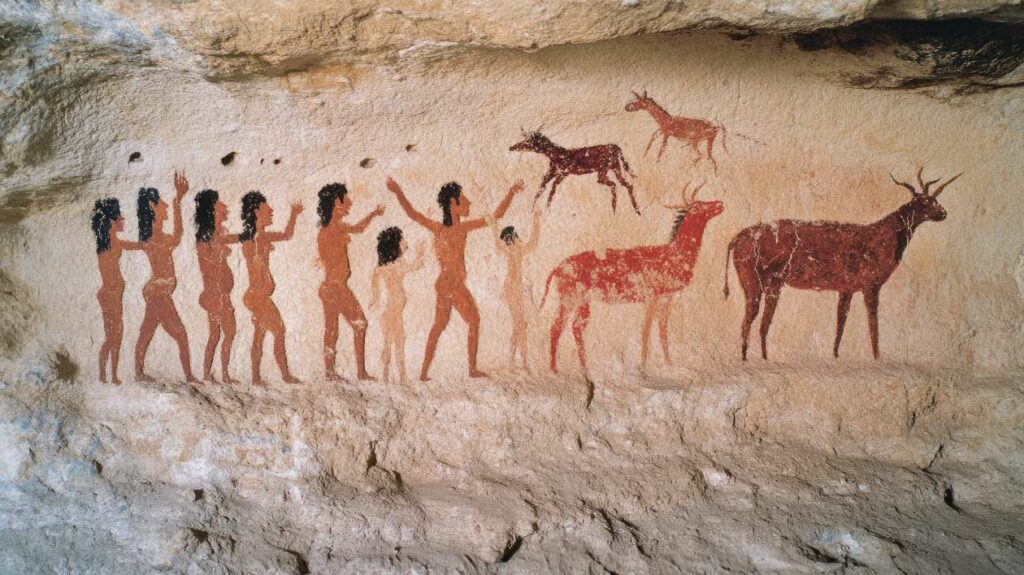A groundbreaking paper by researcher Ilya A. Kanaev presents a compelling new framework for understanding the origin of consciousness. In his work, “Evolutionary origin and the development of consciousness“, Kanaev combines advances in anthropology and neuroscience to argue that our inner world is not just a mysterious byproduct of a complex brain.
Instead, human consciousness is a sophisticated tool that evolved for a very specific purpose: to help us survive and thrive in large, complex social groups. This perspective refutes the idea of separating the mind from the physical body, suggesting that our experience is deeply rooted in our evolutionary history and the very way our brains interact with the world.
The Neurological Origin of Consciousness: The Brain’s Inner World
To understand this theory, we must first change how we think about the brain. It is not a passive computer simply reacting to inputs. Your brain maintains a constant, dynamic hum of internal, or intrinsic, activity.
Kanaev’s framework suggests that your personal experience is born from the “ongoing process of overlap between intrinsic neural dynamics and stimulation”. Imagine your brain’s constant background hum is like the existing currents in a pond. When you sense something from the outside world, it’s like a pebble dropping in, creating ripples. Your subjective reality is the unique interference pattern created where the new ripples meet the pond’s own currents.
This is why, as the paper notes, “one’s experience is always construed from an individual’s own perspective, which suggests the existence of subjective realities”. This basic form of experience, called subjective reality, is a key building block in the origin of consciousness, a story that becomes unique in humans.
The Social Origin of Consciousness: The Power of the Group
The secret to the human origin of consciousness seems to lie in our social evolution. The primary challenge for our ancestors was not just surviving in nature, but navigating an increasingly complex social landscape. This idea is central to the Social Brain Hypothesis, which posits that living in complexly bonded groups was “among the main factors linked to complicated behavior, contributing to the evolution of the neural system”. Our brains evolved their remarkable complexity to manage social relationships.

Studies show this specialization starts early. In tests comparing human toddlers to young chimpanzees and orangutans, researchers found that “the social skills of humans outperformed those of apes, while the ability to deal with the physical world remained comparable”.
Our survival became deeply dependent on cooperation and alloparenting, where relatives and other group members help raise children. This environment created a powerful “social selection” process, favoring children who could best understand others and align with adults to receive care and support. These were key pressures that shaped the origin of consciousness.
From Experience to Intention: The Final Step in the Origin of Consciousness
This intense social pressure required a new mental skill set. To maintain the social cohesion necessary for survival, our ancestors needed to control their behavior at the level of their intentions. This leap is what distinguishes human consciousness from the more basic subjective reality of other animals.
Kanaev proposes a clear distinction: to define “subjective reality” as the basic experience of any complex organism, and to define “consciousness” as a “distinct human ability to control behaviour at the level of intentions”.
Mastering this self-control is mentally demanding and relies heavily on our working memory, the brain’s capacity to hold and process information in the moment. It allows us to weigh our desires against social norms and predict the consequences of our actions.
This cognitive ability may explain why modern humans thrived while other hominins, like the Neanderthals, did not. Though Neanderthals had a similar cultural level, they likely lived in smaller groups, which may have been a critical disadvantage against larger, more cooperative human societies.
Ultimately, our consciousness was forged in the fire of social living. It is a learned skill that allows us to build cultures, share knowledge, and form the deep, meaningful bonds that define us as a species.
